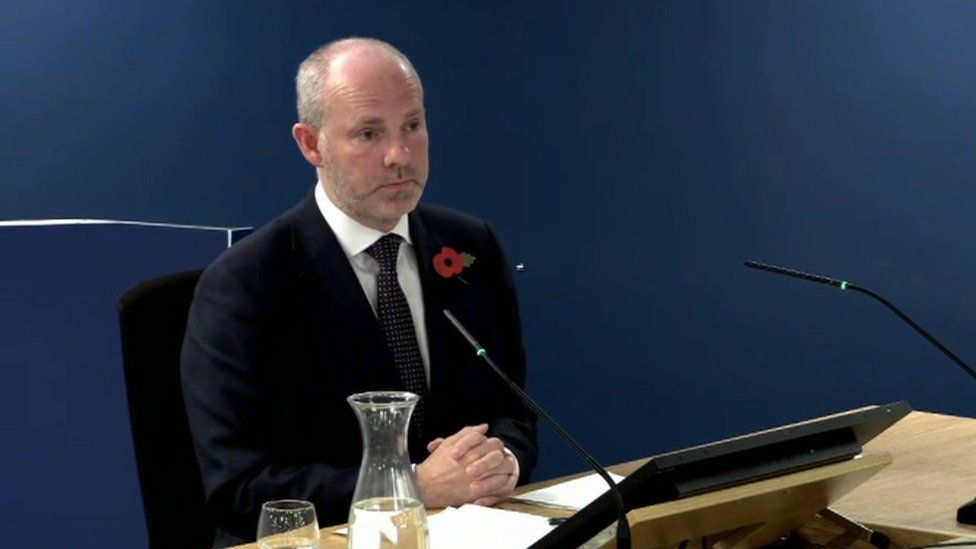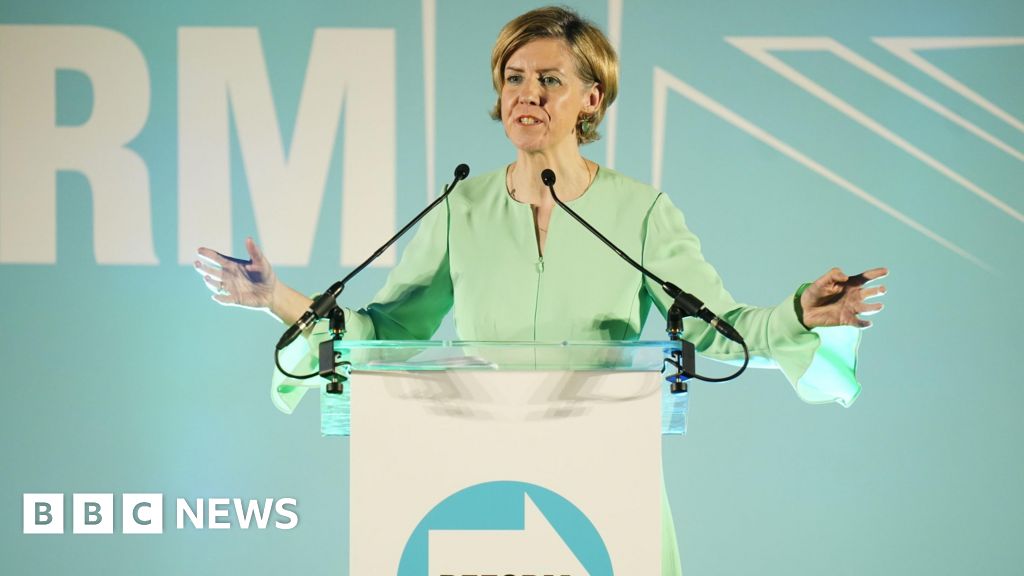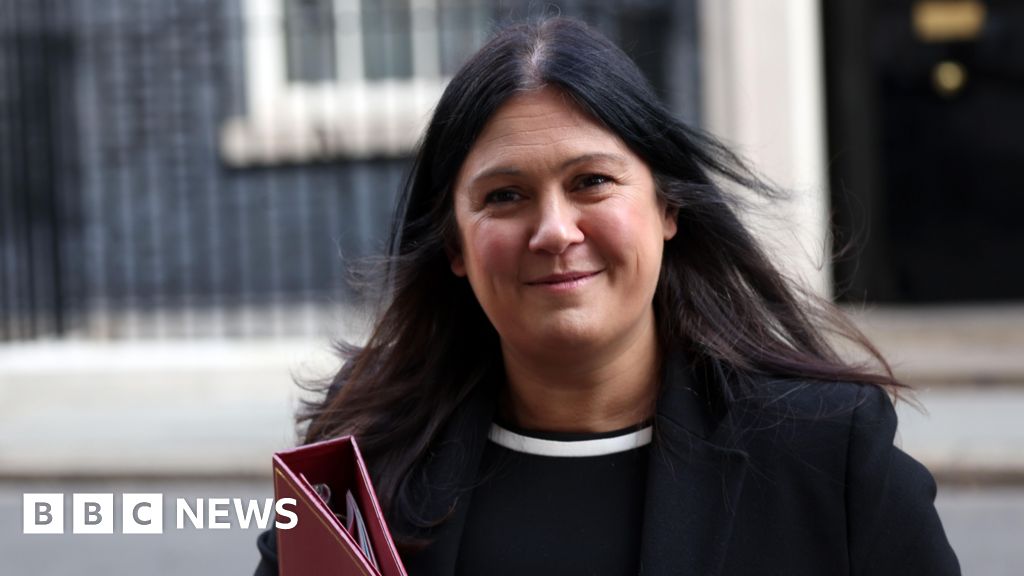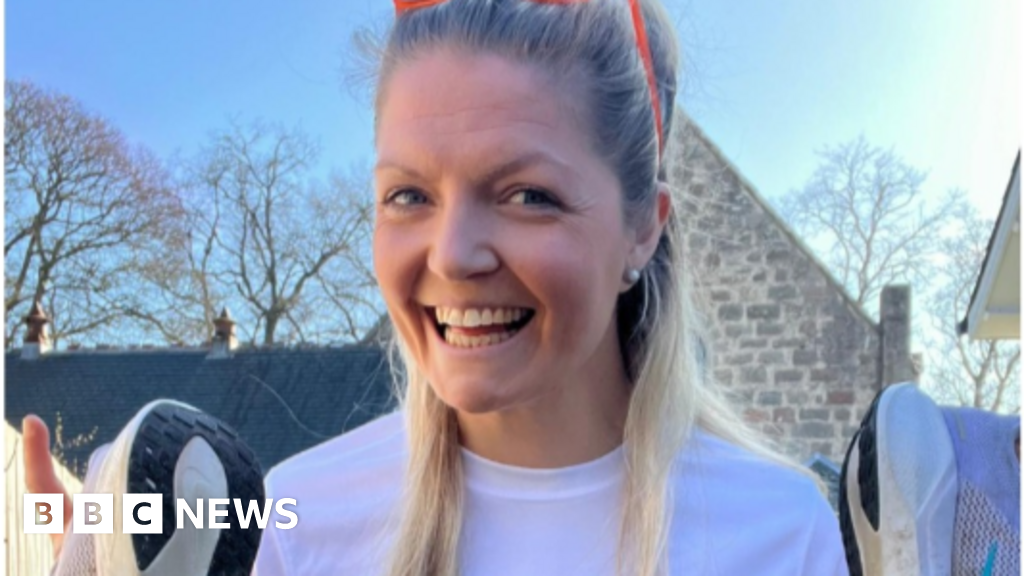ARTICLE AD BOX
 Image source, Covid inquiry
Image source, Covid inquiry
By Becky Morton
Political reporter
An ex-minister has defended the government's approach to disabled people during the pandemic, following claims they were "largely disregarded".
Justin Tomlinson, a former minister for disabled people, told the Covid inquiry the government recognised this group was at greater risk from the virus.
He added that work had been done "at pace" to address this.
The inquiry has previously been told that disabled people's views were not properly heard ahead of key decisions.
Nearly six out of 10 people who died with coronavirus in England from January to November 2020 were disabled, according to the Office for National Statistics (ONS).
In a witness statement published earlier this month, chief executive of charity Disability Rights UK, Kamran Mallik, said: "From the statements, decisions and actions of the UK government throughout the crisis, considerations relating to disabled people appeared to be largely disregarded."
Danny Friedman KC, the lawyer acting on behalf of national disabled people's organisations, suggested to Mr Tomlinson there was "no coherent plan" for disabled people at the start of the pandemic.
However, Mr Tomlinson, who was minister for disabled people during the early stages of the Covid crisis, insisted work was done "at pace", including on ensuring the system for assessing disability benefits continued to work smoothly.
He said this took a "significant chunk" of his team's focus as, if it had gone wrong, it would have been "absolutely catastrophic".
Asked why it took until May 2020 for the impact of Covid-19 on disabled people to become an agenda item for a ministerial implementation group, Mr Tomlinson said: "These sorts of meetings are flagging topical issues, outstanding issues of the time, rather than an opportunity to list things that are already in train."
He rejected the suggestion the government was too late to look at the issue, adding: "You're working on the assumption nothing was done until that point... Things happened before that and they were done at pace."
Pressed on whether there was a cross-government plan for disabled people at that time, Mr Tomlinson said: "It's included in all of the wider government actions."
The inquiry's lawyer also highlighted that a report done by then-Minister for Equalities Kemi Badenoch on addressing Covid health disparities focused on the impact on ethnic minorities and did not cover disabled people.
Mr Tomlinson said he did not know why this was the case.
He added that, although it took time to collect data, "there was a working presumption across government and across society that those with underlying health conditions and disabilities would be at greater risk of the impacts of Covid".
Disabled people 'ignored'
The former minister accepted that, in some areas, there was insufficient focus on the effect of the pandemic on disabled people. One issue he highlighted was some government communications being inaccessible.
He said the issue was flagged repeatedly and was "an easy fix", which took "far too long".
In his evidence earlier this month, Mr Mallik of Disability Rights UK said there was a "shocking disregard" when it came to providing information in alternative formats for disabled people, including letters on shielding for clinically vulnerable groups.
He said his charity had also raised concerns about protections for care home residents, and help for disabled people who were not shielding but still needed support accessing food and essentials.
Mr Mallik added that there had been no consultation to allow the views of charities or disabled people to be "properly heard before decisions were made".
Responding to Mr Tomlinson's evidence, James Taylor, from disability charity Scope, said: "Today has highlighted what we at Scope have said all along. Disabled people were forgotten, neglected and ignored during the pandemic by the government.
"We know three in five people who died from Covid-19 were disabled. A saddening statistic that could have be avoided had the government acted sooner and prioritised disabled people."

 1 year ago
28
1 year ago
28








 English (US) ·
English (US) ·